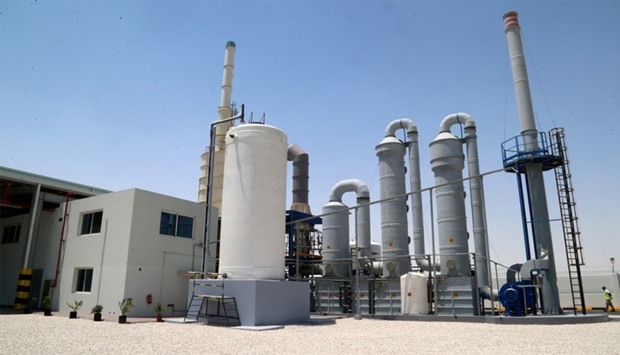A state-of-the-art waste treatment plant, promoted by prominent construction group Boom Constructions, was commissioned in Mesaieed Industrial City (MIC).
The Boom Waste Treatment Company (BWTC), with a capacity to handle more than 4,600 tonnes of hazardous and hospital waste per year, is a first-of-its-kind facility in Qatar.
Employing Swiss and Italian technologies in waste treatment, the plant is built to the environmental standards set by the European Union (EU).
It was informed at the opening that the plant would treat approximately 12 tonnes of hazardous and hospital waste (clinical waste) per day. The promoters are expecting the government nod for a four-fold increase in its capacity before the end of this year.
The plant was formally opened at a ceremony held on the company premises by HE the Minister of Municipality and Environment Mohamed bin Abdullah al-Rumaihi in the presence of its promoters and guests. Technical affairs director at the ministry Jamal Shareeda al-Kaabi, Boom Constructions chairman Khames Mohamed al-Sulaiti and vice-chairman Saleh Rashed al-Sulaiti were among the dignitaries who attended the opening.
Speaking to journalists after a tour of the plant, HE the Minister said the government would encourage private entrepreneurs to take up similar eco-friendly ventures as part of its efforts to promote investment in the industrial sector.
The BWTC has been treating and disposing clinical and other hazardous waste since 2002 and it now has two hazardous waste incineration plants (Plant 1 and Plant 2; the latter was opened yesterday), both located in MIC.
Plant 1 was set up as a controlled air incinerator of hazardous waste with a capacity to treat 10 tonnes/day. It can incinerate clinical waste along with select types of chemical waste. Besides chemical waste, the plant could handle such wastes as mud cuttings, tank sludge, oil contaminated soil and filters.
The capacity of the plant was raised to meet the growing demand of hazardous waste management facilities due to the rise in the country's population.
The new plant's incineration system is built for handling solid wastes of varying density and moisture content, a company spokesman said.
With the proposed future expansion, the MIC facilities will have the capacity to treat up to 18,000 tonnes of waste a year.

